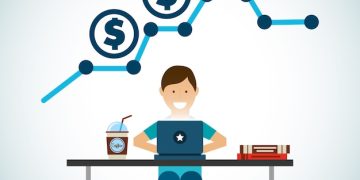Tax Credits for Educators: Maximizing Your Deductions in 2025

Tax credits for educators can significantly reduce the financial burden of classroom expenses; understanding eligibility, qualified expenses and how to claim these credits is crucial for maximizing deductions in 2025.
Navigating tax season can be particularly challenging for educators who often invest personal funds in their classrooms. Fortunately, tax credits for educators offer a way to recoup some of these expenses, but how does one go about maximizing these deductions in 2025?
Understanding Educator Tax Credits in 2025
Educator tax credits are designed to alleviate the financial strain teachers face when purchasing classroom supplies and resources. These credits can provide a significant tax break, but it’s essential to understand the eligibility criteria and what expenses qualify.
The specifics of educator tax credits can change from year to year, so staying informed about the latest updates is crucial. The following sections will break down key aspects to help educators make the most of these benefits in 2025.

Eligibility Requirements
To be eligible for educator tax credits, certain criteria must be met. These typically include:
- Being a K-12 teacher, instructor, counselor, principal, or aide.
- Working at least 900 hours during the school year.
- Working in a school that provides elementary or secondary education as determined under state law.
What Expenses Qualify?
Qualified expenses typically include:
- Books, supplies, and other classroom materials.
- Equipment, including computer equipment, software, and services.
- Professional development courses related to the curriculum or students they teach.
Understanding what is considered a qualified expense is the first step in maximizing your deductions. Be sure to keep detailed records of all purchases, including receipts and invoices.
In conclusion, understanding the educator tax credits available in 2025 involves knowing the eligibility requirements and identifying qualified expenses to ensure educators can benefit from these deductions.
Navigating the IRS Guidelines for Educator Expenses
The IRS sets specific guidelines for what educators can deduct, and staying within these rules is essential for a smooth tax filing process. These guidelines cover various aspects, including the types of expenses that qualify and the limits on deductions.
Understanding these guidelines helps educators properly document and claim their expenses, reducing the risk of audits or disallowed deductions. It’s also wise to consult with a tax professional to ensure compliance with all relevant regulations.
Essential IRS Guidelines
The IRS provides clear guidelines on educator expenses, which include:
- Eligible Educators: Those who work at least 900 hours during the school year in a school that provides elementary or secondary education.
- Qualified Expenses: These include books, supplies, other classroom materials, and professional development expenses.
- Annual Deduction Limit: This is the maximum amount an eligible educator can deduct each year.
Documentation Requirements
To claim deductions, educators must maintain thorough records, including:
- Receipts for all purchases.
- Invoices for services rendered.
- Detailed notes on how the expenses benefit the students or curriculum.
By following these IRS guidelines meticulously, educators can confidently claim their tax credits and avoid potential issues during tax season.
In conclusion, navigating IRS guidelines for educator expenses is crucial for accurately claiming deductions and maintaining compliance, reducing the risk of tax-related issues.
Commonly Overlooked Deductions for Teachers
While many educators are aware of basic deductible expenses like classroom supplies, there are several lesser-known deductions that can significantly increase tax savings. These overlooked deductions often involve professional development, technology, and other educational resources.
By exploring these often-missed opportunities, teachers may find additional ways to reduce their tax burden and invest more in their classrooms and professional growth.
Here are some commonly overlooked deductions for teachers:
- Professional development expenses beyond what is reimbursed by the school.
- Technology costs, such as software and online resources used for teaching.
- Unreimbursed travel expenses for educational conferences and workshops.
Identifying and claiming these overlooked deductions can lead to significant tax savings for educators, helping them to better support their students and their own professional development.
In conclusion, recognizing and claiming commonly overlooked deductions can significantly increase tax savings for educators, enabling them to reinvest in their classrooms and professional growth.

Maximizing Tax Credits: Tips and Strategies
Getting the most out of educator tax credits involves strategic planning and meticulous record-keeping. By implementing effective tips and strategies, educators can ensure they claim all eligible deductions and optimize their tax benefits.
This section provides essential advice on how to maximize these tax credits, from organizing expenses to exploring additional deductions and credits.
Organize and Track Expenses
Efficiently organizing and documenting expenses is crucial for maximizing tax credits. Consider the following:
- Create a system for tracking all classroom-related expenditures.
- Use digital tools like spreadsheets or expense-tracking apps to record purchases.
- Regularly update records and categorize expenses to streamline the tax preparation process.
Explore Additional Deductions and Credits
In addition to the educator expense deduction, investigate other potential tax benefits:
- Look into state-specific tax credits for educators.
- Consider deductions for home office expenses if a dedicated workspace is used for teaching.
- Consult with a tax professional to identify any unique deductions based on individual circumstances.
Implementing these strategies will help educators take full advantage of available tax credits and deductions, resulting in significant savings.
In conclusion, maximizing tax credits requires strategic planning, diligent record-keeping, and exploring additional deduction opportunities to optimize tax benefits for educators.
Documenting Your Expenses: Best Practices
Proper documentation is critical when claiming tax credits for educator expenses. Without adequate records, the IRS may disallow deductions, leading to higher tax liabilities. Implementing best practices for documenting expenses ensures accuracy and compliance.
This section outlines the most effective methods for maintaining thorough and organized records, reducing the risk of errors, and maximizing tax benefits.
Essential Documentation Practices
To effectively document expenses, consider these best practices:
- Keep all receipts: Save receipts for every purchase related to the classroom or professional development.
- Categorize expenses: Organize receipts by category, such as supplies, equipment, or professional development.
- Maintain digital copies: Scan or photograph receipts and store them electronically for easy access.
What to Include in Your Records
Ensure your records include the following details:
- Date of purchase: The exact date when the expense was incurred.
- Vendor information: The name and contact information of the vendor.
- Description of items: A clear explanation of what was purchased and its purpose.
By following these best practices, educators can maintain accurate and complete records, making the tax filing process smoother and more successful.
In conclusion, proper documentation of expenses is essential for claiming tax credits, and implementing best practices ensures accuracy, compliance, and maximized tax benefits for educators.
Staying Updated on Tax Laws for Educators
Tax laws and regulations are subject to change, and staying informed about the latest updates is crucial for educators to accurately claim tax credits. Changes in tax laws can affect eligibility, deductible expenses, and deduction limits.
This section provides guidance on how to stay updated and ensure compliance with the most recent tax regulations, reducing the risk of errors and maximizing potential tax savings.
Reliable Sources for Tax Law Updates
To stay informed about tax law changes, rely on reputable sources such as:
- IRS Website: The official IRS website provides updates, publications, and guidance on tax-related matters.
- Tax Professionals: Enlisting the help of a qualified tax professional ensures you receive personalized advice and stay current with tax laws.
- Educational Organizations: Many educational organizations offer resources and updates on tax benefits for educators.
Regularly Check for Updates
Make it a habit to check for tax law updates regularly, especially during tax season. This includes:
- Subscribing to IRS newsletters for timely updates.
- Following tax professionals or educational organizations on social media.
- Attending tax seminars or webinars to learn about recent changes and best practices.
By staying proactive and informed, educators can confidently navigate tax season and maximize their tax benefits.
In conclusion, staying updated on tax laws for educators is essential for accurate tax credit claims, and utilizing reliable sources and regular updates ensures compliance and maximized tax savings.
| Key Point | Brief Description |
|---|---|
| 📚 Eligibility | K-12 teachers, instructors, counselors, principals, or aides working at least 900 hours. |
| 📝 Qualified Expenses | Books, supplies, equipment, and professional development related to curriculum or students. |
| 🧾 Documentation | Keep receipts, categorize expenses, and maintain digital copies for easy access. |
| 🔄 Staying Updated | Check IRS website, consult tax professionals, and follow educational organizations for updates. |
Frequently Asked Questions About Educator Tax Credits
▼
Eligible educators include K-12 teachers, instructors, counselors, principals, or aides who work at least 900 hours during the school year in a qualified school.
▼
Qualified expenses include books, school supplied , other classroom materials,computer equipment,software,professional developmental courses.
▼
Keep all receipts, categorize expenses, and maintain digital copies of all documents for easy access and verification.
▼
Check the IRS website, consult a tax professional, and follow educational organizations for timely updates and guidance.
▼
You can only claim expenses that you have spent yourself which haven’t been reimbursed by the school.
Conclusion
Understanding and maximizing tax credits for educators in 2025 involves staying informed about eligibility requirements, documenting expenses meticulously, and staying updated on the latest tax laws. By implementing these strategies, educators can confidently navigate tax season and optimize their tax benefits.





